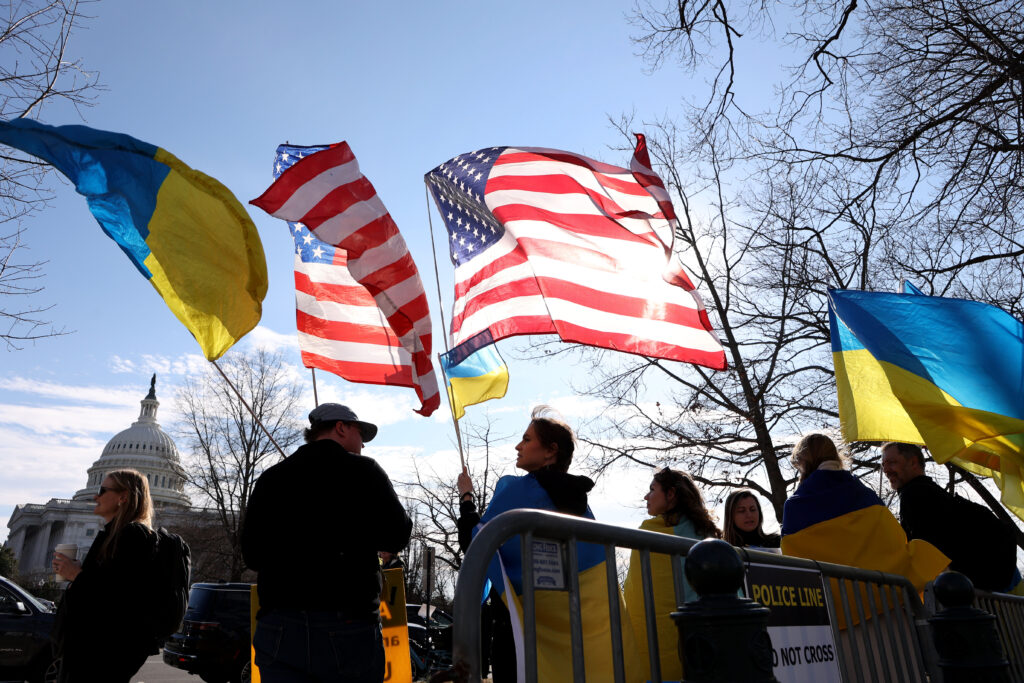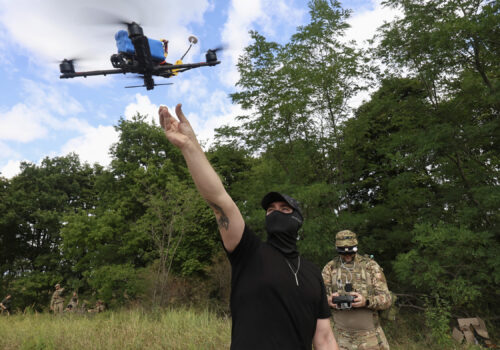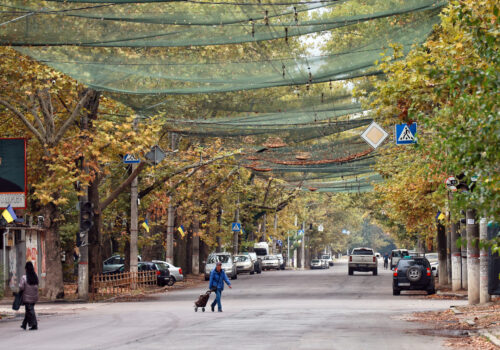Like many Ukrainians, Valerii Iakovenko and his family ended up far from home in 2022 after the full-scale Russian invasion; in Pennsylvania, to be precise. Valerii wasn’t just seeking safe harbor in a storm, though. He was also expanding his business, which happens to be agricultural scouting with drones. His story illustrates the little-known but significant benefits that Ukrainian-American businesses have brought to the United States economy.
Valerii considered tech hubs like California or Austin but chose to open an engineering center in New Town, Pennsylvania. His company pioneered agro-scouting and aerial fertilization in Ukraine, helping farmers see what’s invisible from the ground, including soil anomalies, missing equipment, and nutrient stress.
Ukraine was an early adopter of drone farming, but its skies are now too dangerous for civilian UAVs. Instead, Valerii’s company supplies farmers from North Carolina to Ohio and Maine with aerial drones to increase harvests and improve field health. “It’s not just about drones,” Iakovenko says. “It’s about building a culture of innovation and helping young people return to rural areas. It’s the same kind of leap as when smartphones replaced push-button phones.”
Iakovenko is a small part of a big story about how Ukrainian entrepreneurship is contributing to local economies across the United States. A new report by the ISE Group, a think tank and startup accelerator with offices in Warsaw, Washington DC, and Kyiv, estimates that Ukrainian-American companies generate nearly $60 billion in annual revenue and support about 300,000 US jobs.
The findings are the first attempt to quantify the economic footprint of Ukrainian-American businesses in the US. Researchers mapped and verified 2,270 Ukrainian-American firms across all fifty states and surveyed a network of more than 45,000 diaspora enterprises. Collectively, the report says, these firms bring in around $55 billion in annual sales, pay out roughly $24 billion in wages, and contribute at least $8 billion in federal, state, and local taxes.
Stay updated
As the world watches the Russian invasion of Ukraine unfold, UkraineAlert delivers the best Atlantic Council expert insight and analysis on Ukraine twice a week directly to your inbox.
Study lead Alexander Romanishyn said the team defined “Ukrainian-American” based on self-identification by business owners including diaspora firms, relocated companies, immigrant-founded ventures, and joint US–Ukrainian enterprises. “We estimate there are roughly 45,000 Ukrainian-American businesses in the US today, about one-third of which employ staff,” said Romanishyn, a former deputy minister of the economy in Ukraine. “We deliberately took a conservative approach to avoid overstating the diaspora’s economic weight.”
Technology is a particular strength, accounting for around 130,000 people, or nearly half of the total workforce in Ukrainian-American companies. With pockets in the Bay Area, New York, Boston, Austin, Dallas, and Seattle, they specialize in software development, AI and machine learning, and cloud integration. Many maintain teams in both the US and Ukraine, helping sustain both economies.
Beyond tech, Ukrainians run businesses in nearly every industry including consulting, healthcare, logistics, manufacturing, retail, construction, real estate, finance, and agriculture. Their presence is spread across the entire country, with concentrations in California, New York, Illinois, Florida, Texas, and New Jersey.
Eurasia Center events

While Ukrainian entrepreneurship in the United States dates back to the 1880s, most Ukrainian-American owned businesses have been launched recently, with around 40 percent opening since 2022. Approximately 180,000 Ukrainians have arrived in the US following the onset of Russia’s full-scale invasion, often through humanitarian programs. Most are still finding their footing. In many cases this means opening small, necessity-driven ventures like home bakeries or cleaning services.
The potential for growth is significant. The report cites surveys indicating that many recent Ukrainian refugees have business experience. Projections suggest they could create 18,000–27,000 new enterprises in the next few years. New arrivals face steep barriers such as lack of savings, no US credit history, and complex visa requirements. Community networks have stepped in to help. In Silicon Valley, for example, the Ukrainian Syndicate Club co-invests in startups founded by Ukrainians.
The big picture is that Ukrainians in the US are builders not beneficiaries. Roman Nikitov, General Partner at United Heritage, a Polish–Ukrainian private equity firm that supported the study, put it this way: “The results mirror what we’ve already seen in Europe. Ukrainians are not beggars but builders, active contributors who strengthen every economy they become part of.” In Poland, for example, where more than a million Ukrainian refugees have settled since 2022, 69 percent are now employed and pay more in taxes than they receive in social support.
The Ukrainian Embassy in Washington DC welcomed the report’s findings. “This study highlights a reality often overlooked, that Ukrainian-American founded businesses in the US are driving local growth and job creation while serving as trusted partners for America’s engagement in Ukraine’s recovery,” said Ihor Baranetskyi, Minister-Counsellor for Economic Issues. “They understand both markets and are uniquely positioned to channel US capital and technology into Ukraine’s reconstruction, advancing prosperity and security for both nations.”
Melinda Haring is a senior advisor at Razom for Ukraine and a senior fellow at the Atlantic Council’s Eurasia Center.
Further reading
The views expressed in UkraineAlert are solely those of the authors and do not necessarily reflect the views of the Atlantic Council, its staff, or its supporters.

The Eurasia Center’s mission is to enhance transatlantic cooperation in promoting stability, democratic values, and prosperity in Eurasia, from Eastern Europe and Turkey in the West to the Caucasus, Russia, and Central Asia in the East.
Follow us on social media
and support our work
Image: Demonstrators with US and Ukrainian flags rally near the U.S. Capitol ahead of President Donald Trump address to a joint session of Congress in Washington DC on March 4, 2025. President Donald Trump is ordering a pause on shipments of US military aid to Ukraine after his heated Oval Office argument with Ukrainian President Volodymyr Zelenskyy last week. Matrix Images / Gent Shkullaku




